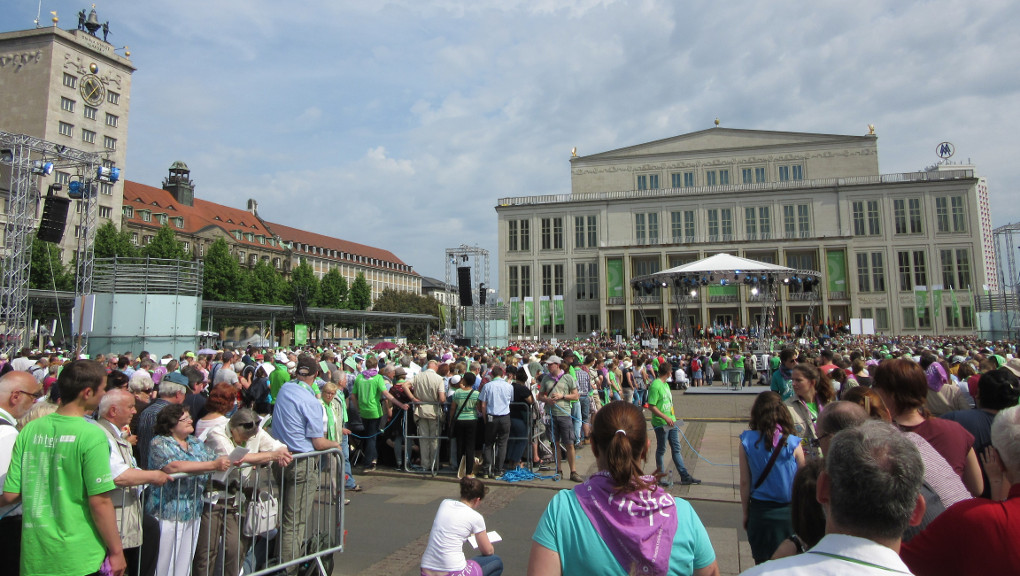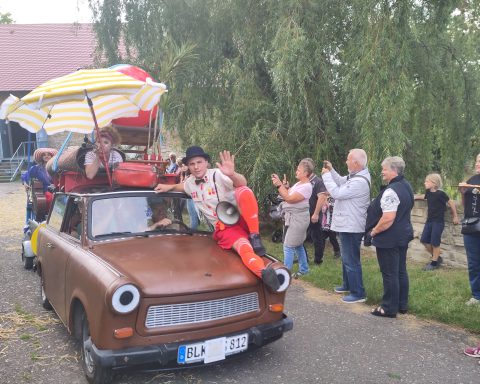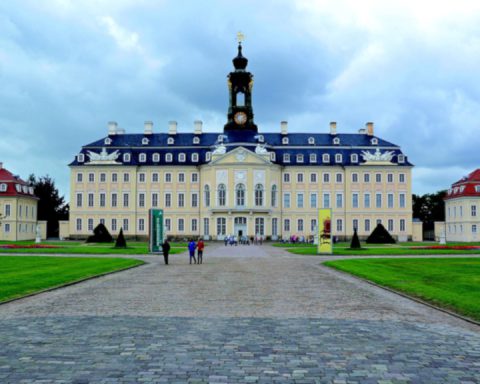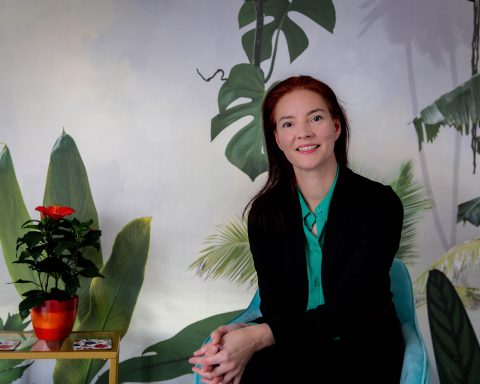Every two years, Catholics from all over Germany gather in one city to organize a Katholikentag. In 2016, from May 25th to 29th, Leipzig was the host. A total of 40,000 guests met here to pray and worship together, to share their experiences and opinions about their faith and the Church, and to attend talks, concerts and the like.
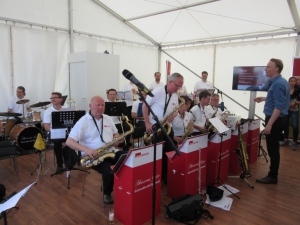
The first Katholikentag dates back to 1848. But before the 2016 edition, which was no. 100, none took place in Leipzig. In fact, our city isn’t a natural location for a Catholic, or any other religious, gathering: Only four percent of Leipzigers call themselves Catholic, and 82 percent don’t have any religious denomination at all. So it’s likely that many of you didn’t really care about last month’s event, or even were upset that despite the extremely low number of Leipzig Catholics, the city contributed one million euros to the event’s funding. Maybe you also just didn’t know what was happening when you saw the crowds in the streets, or cursed at the traffic being disrupted.
As for myself, I’ve been Catholic since my early childhood. I don’t agree at all with many teachings, behaviors and attitudes of the Catholic Church. Nevertheless, I’ve never thought of quitting, because the bad things are for me clearly outweighed by the good ones. Plus, if you just break away from the Church, you can’t really complain anymore about things needing change, because the Church no longer is your business.
In any case, so far I’d never been to a Katholikentag, but when it came to Leipzig, I decided to check it out. I went to one collective discussion, took a look at the information booths of various Catholic organizations, and took part in the final mass on Augustusplatz on Sunday, May 29th. At the same time, I do see that for the sake of that Katholikentag, Leipzig has made – and non-participants were forced to make – sacrifices.

I’d like to explain why, in my view, those sacrifices for Katholikentag were worthwhile.
To begin with, the one million euros – less than two euros per inhabitant – certainly will come back to the city more or less directly, in the form of the taxes from the money the 40,000 (!) visitors spent here. It was to Leipzig’s advantage as a tourist destination and hub to host a major, prestigious gathering like this one. Leipzig also gets an image boost, especially in light of the disgrace of the regular Legida demonstrations: The Katholikentag, which was covered in the national media and took place in great peace and harmony, was a wonderful chance for Leipzig to advertise itself.
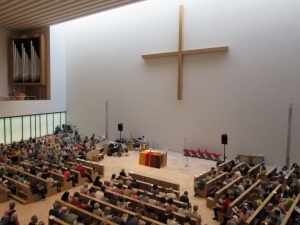
But this is not my most important argument. Let me give you three more profound ones.
1. You may say that religion is nonsense, and believe in no God. True, we can’t prove He exists. But it’s equally true that you can’t disprove His existence either. Nowadays, in the “rationalized” Western world, some people tend to regard “believers” as empty-headed and/or brainwashed lunatics. However, as a human, it’s by definition impossible for you to disprove a God like the Christian one: He is defined as almighty, so He could also render it impossible for you to find out whether He exists or not. As a consequence, both assuming that God exists and that he doesn’t is logically valid.
By the way, here’s why I assume He exists: I refuse to believe that the world where we live is everything that there is. We may find deep satisfaction in this world, and science may someday explain us everything it contains, but why are we here? Where do we come from? And where are we going when we die? These are existential questions. Believing in God provides answers.
2. You may say that you can’t respect the Catholic Church (anymore) due to its notorious intolerance, reactionary ethics and criminal history. True, all these things exist, and I’d be the last to defend them. We can, however, explain them, namely with the fact that whereas God should be perfect, His Church can’t be, as it consists of humans, and humans are full of sins and mistakes. This may lead them to misinterpret the will of God, as expressed by Jesus, and then obsessively cling to the misinterpretation for centuries and millennia.
For example, when Jesus said that marriages shouldn’t be divorced, he also indicated that this was to protect the wife from being cast out by her husband, as seems to have been common before (Gospel of Matthew 19:8–9). Jesus didn’t say that marriages should last forever – indeed, how would a good God want unhappy marriages to continue? But at some point, the humans of the Church derived from that the “indissolubility of the marriage bond.” This was for complex historical reasons as well as, in my view, psychological ones: Humans tend to be afraid to somehow lose God’s favor. They figure that logically, to preserve it, there are things they should do, and other things they mustn’t do. They also figure that logically, the more difficult certain things are to do/not to do, the more favor from God does the human who does/doesn’t do them deserve. Not quitting one’s marriage until the end of one’s life seems to be rather difficult. Therefore, the Church insists on it so relentlessly.
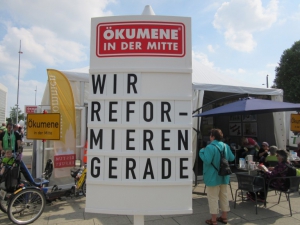
By the way, you can be sure that at the Katholikentag, many Catholics were present that have similar misgivings about the Church’s official doctrines. This is because a Katholikentag isn’t organized by the clergy, who is just invited, but by the laypeople, represented by the Central Committee of German Catholics. As a consequence, there were information booths such as that of the “Gay and Lesbian Mass Community,” or the “Priests and Women Initiative.”
Similarly, in the collective discussion I attended, which was about “Sexuality and the Church,” participants frankly revealed their difficulties with what the Church teaches in that regard. They emphasized a silver lining that I can confirm from my own experience: The common Catholic clergy – the priest of the parish next door – tends to be far more liberal than the pope (even Francis) and the bishops. In fact, two discussion participants said that their priests had advised them to sleep with their respective partner already before the wedding, so that they wouldn’t “buy a pig in a poke.” They appreciated the priest’s pragmatism. That’s how Catholic priests and pious Catholic laypeople can sound like in 2016.
3. You may still say that you don’t believe in God and/or don’t like the Catholic Church anyway. Then let me try one last argument: Despite all faults of the Church, you can’t deny that it makes enormous contributions to charity around the world every day. At the information booths of the Katholikentag, you could see the wide range of that work – from the support of the poor in Brazilian slums over to fair trade programs in Africa to the spiritual care for prison inmates in Germany. Every kind of help is provided, by Catholic lay communities as well as clerical ones.
Sure, help is provided also by governments as well as secular international organizations and NGOs. However, in my view, no motivation for doing charity can be as strong as a religious motivation – the quest to please God, and the idea that God can be found especially where the poor or the sick are. In the case of religious orders, many of which were present at the Katholikentag, that religious motivation may even lead men and women to give up everything worldly, and devote their whole life to serving other people. Does, for example, a UN official do that? I don’t think so.
Yes, the Catholic Church does not eliminate all the misery in the world. But it eliminates some, and thus makes the world better.
The next Katholikentag in Leipzig will, if ever, take place only in some decades. Maybe you didn’t mind the one last week anyway or even participated in it. If not, maybe my arguments here have improved your opinion about, or triggered your interest in, the event. If that’s not the case either, then at least I’m happy that in the medium run you don’t need to worry anymore about crowds of Catholics blocking the way, or your taxes being spent for them.


